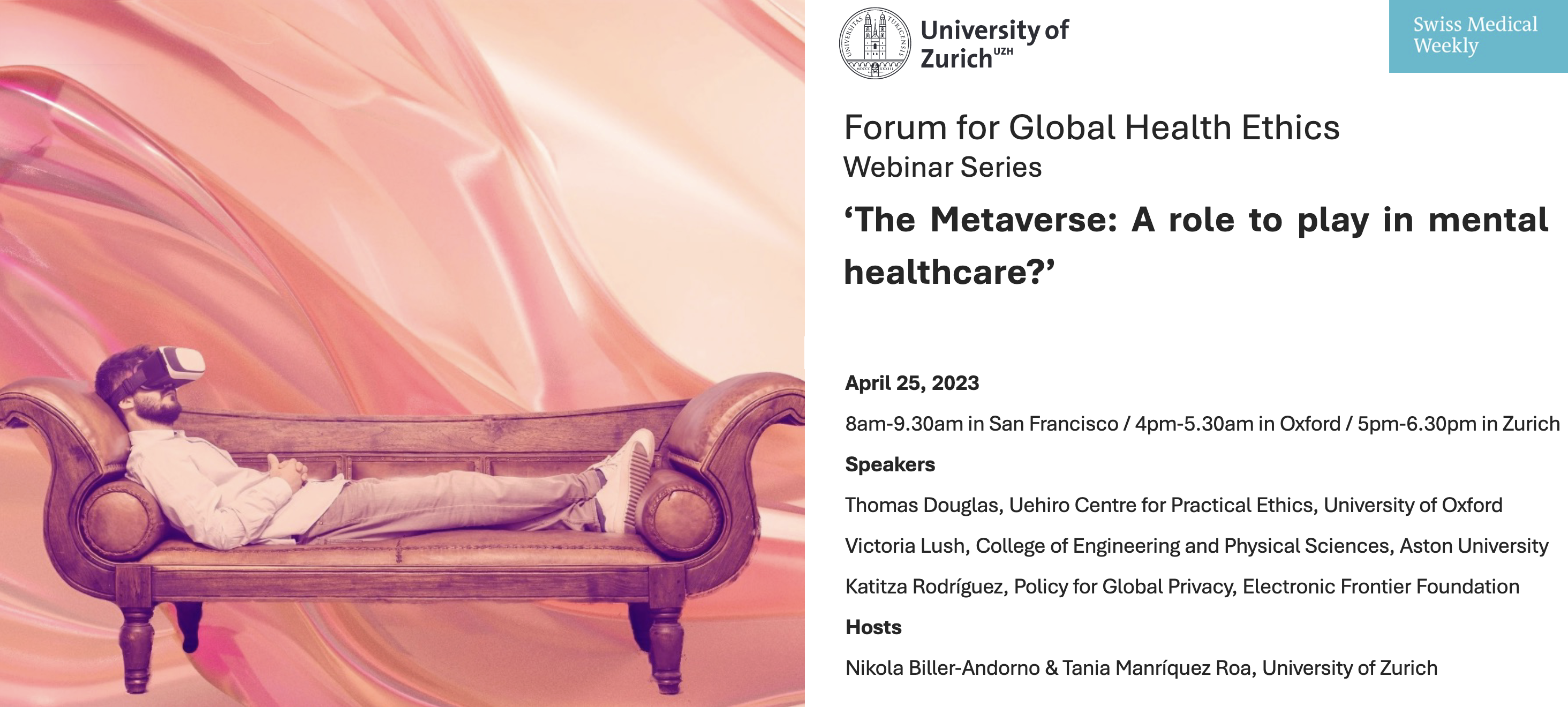Webinar on The Metaverse and its Role in Mental Healthcare

The metaverse is an immersive space in which users can experience being “inside” the internet and interact digitally with other users, objects, and environments. Researchers are exploring whether the technologies that generate the metaverse – virtual and augmented reality – might be tools for mental healthcare. Recent studies show that 3-D hologram clinicians for virtual consultations or augmented reality exposure therapy could play a role supporting mental health professionals in treating post-traumatic stress disorder, attention deficit disorders, eating disorders, addictions, panic disorders, among others.
In this webinar we addressed ethical questions that emerge with the provision of mental healthcare in the metaverse. Can virtual and augmented reality be valuable for people with limited access to in-person mental healthcare? Will accessing mental healthcare in the metaverse expose people to violations of their mental integrity? Can the metaverse protect people’s privacy?
Speakers:
- Thomas Douglas, Uehiro Centre for Practical Ethics, University of Oxford
- Victoria Lush, College of Engineering and Physical Sciences, Aston University
- Katitza Rodríguez, Policy for Global Privacy, Electronic Frontier Foundation
Hosts: Nikola Biller-Andorno & Tania Manríquez Roa, University of Zurich
Organising institutions: University of Zurich (IBME) and Swiss Medical Weekly
Organisers: Tania Manríquez Roa, Nikola Biller-Andorno, Dominik Bolliger and Sophie Gloeckler
Read the viewpoint «Mental health services in the metaverse: potential and concerns», by Sophie Gloeckler and Nikole Biller-Andorno
Read the webinar report «The Metaverse: a role to play in mental healthcare?» by Oriane Pierrès (this text has been accepted for publication in the EACME Newsletter n64, September 2023)
This webinar was hosted by the Forum for Global Health Ethics in association with a project supported by the Commonwealth Fund: Mental Healthcare in the Metaverse: Exploring the Ethical and Regulatory Landscape
Here you can watch clips of this webinar.
